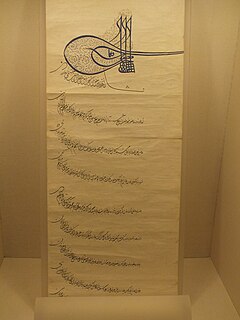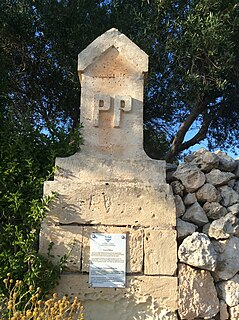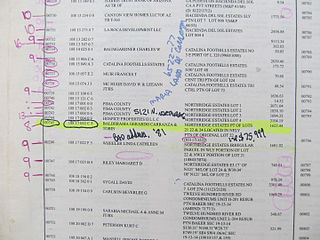 W
WAir rights are the property interest in the "space" above the earth's surface. Generally speaking, owning, or renting, land or a building includes the right to use and develop the space above the land without interference by others.
 W
WA banker's lien is a legal right arise in many common law jurisdictions of a bank to exercise a lien over any property in the custody of the bank as security for the indebtedness of the customer to the bank.
 W
WA bona fide purchaser (BFP) – referred to more completely as a bona fide purchaser for value without notice – is a term used predominantly in common law jurisdictions in the law of real property and personal property to refer to an innocent party who purchases property without notice of any other party's claim to the title of that property. A BFP must purchase for value, meaning that he or she must pay for the property rather than simply be the beneficiary of a gift. Even when a party fraudulently conveys property to a BFP, that BFP will, depending on the laws of the relevant jurisdiction, take good (valid) title to the property despite the competing claims of the other party. As such, an owner publicly recording his or her own interests protects himself or herself from losing those to an indirect buyer, such as a qualifying buyer from a thief, who qualifies as a BFP. Moreover, so-called "race-notice" jurisdictions require the BFP himself or herself to record to enforce his or her rights. In any case, parties with a claim to ownership in the property will retain a cause of action against the party who made the fraudulent conveyance.
 W
WThe Bug River land is land which was within the territory of interbellum Poland and was forcibly vacated by Polish landowners after 1945 when the territory ceased to be inside Poland. The name refers to the Bug River because the Bug forms a major part of the new eastern boundary of Poland largely based on the Curzon Line, separating the so-called Eastern Borderlands from the rest of current Polish territory. The Bug River land is today distributed between the states of Belarus, Lithuania, and Ukraine. The claims for compensation for this sequestered land are known as the Bug River claims.
 W
WA campsite or camping pitch is a place used for overnight stay in an outdoor area. In UK English, a campsite is an area, usually divided into a number of pitches, where people can camp overnight using tents, camper vans or caravans; this UK English use of the word is synonymous with the US English expression campground. In American English, the term campsite generally means an area where an individual, family, group, or military unit can pitch a tent or park a camper; a campground may contain many campsites.
 W
WA certificate of occupancy is a document issued by a local government agency or building department certifying a building's compliance with applicable building codes and other laws, and indicating it to be in a condition suitable for occupancy.
 W
WThe commodity status of animals is the legal status as property of most non-human animals, particularly farmed animals, working animals and animals in sport, and their use as objects of trade. In the United States, Free-roaming animals are (broadly) held in trust by the state; only if captured can be claimed as personal property.
 W
WIn the United States, criminal justice financial obligations (CJFOs), alternatively monetary sanctions or legal financial obligations, refers to costs paid by individuals as a result of their involvement in the criminal justice system. CJFOs consist of fines, property forfeiture, costs, fees, and victim restitution, and may also include payment for child support. They have their roots in European laws going back to the Middle Ages, and although they fell out of favor in the US in the early 19th century, regained popularity in the mid to late 20th century, to become the most common form of punishment used by the criminal justice system across the country.
 W
WCuius est solum, eius est usque ad coelum et ad inferos is a principle of property law, stating that property holders have rights to not only to the plot of land itself, but also the air above and the ground below. The principle is often referred to in its abbreviated form as the ad coelum doctrine.
 W
WDeeds registration is a land management system whereby all important instruments which relate to the common law title to parcels of land are registered on a government-maintained register. Deeds registration systems were set up to facilitate the transfer of title. The system had been used in some common law jurisdictions and continues to be used in some jurisdictions, including most of the United States. It is being replaced by Torrens systems in many jurisdictions. Australia, Ireland as well as most Canadian provinces have converted from deeds registries to Torrens titles. Some Canadian provinces have never operated a deeds registry and have always used Torrens titles. Other Canadian provinces which have converted from a deeds registry to Torrens titles have operated both systems in conjunction until the Torrens system gradually superseded the deeds registry system, as was the case in Nova Scotia and New Brunswick during the 2000s. In the Canadian province of Ontario, electronic registration led to Ontario's version of Torrens title covering almost all land, but the past deeds registration still governs some issues. Hong Kong and the Canadian provinces of Quebec, Newfoundland and Labrador and Prince Edward Island are the only provinces left which still operate a deeds registration system.
 W
WThe discovery doctrine, also called doctrine of discovery, provided a philosophical framework for Christian explorers, to lay claim to territories uninhabited by Christians. Under this belief, title to lands lay with the government whose subjects travelled to and occupied a territory whose inhabitants were not subjects of a European Christian monarch. The doctrine was strongly held by King Ferdinand and Queen Isabella of Spain who financed Columbus' first expedition to America. The Spanish monarchs were strongly backed on this by Pope Alexander VI, who confirmed their right of possession of all newly discovered lands in the Americas. He repeated what had been said by earlier Popes such as Nicholas V. As described by the Upstander Project,Two papal bulls, in particular, stand out: (1) Pope Nicholas V issued "Romanus Pontifex" in 1455, granting the Portuguese a monopoly of trade with Africa and authorizing the enslavement of local people; (2) Pope Alexander VI issued the Papal Bull “Inter Caetera” in 1493 to justify Christian European explorers’ claims on land and waterways they allegedly discovered, and promote Christian domination and superiority, and has been applied in Africa, Asia, Australia, New Zealand, and the Americas. The 1493 Papal decree aimed to justify Christian European explorers’ claims on land and waterways they allegedly discovered, and promote Christian domination and superiority, and has been applied in Africa, Asia, Australia, New Zealand, and the Americas. If an explorer proclaims to have discovered the land in the name of a Christian European monarch, plants a flag in its soil, and reports his “discovery” to the European rulers and returns to occupy it, the land is now his, even if someone else was there first.
 W
WDower is a provision accorded by law but traditionally by a husband or his family, to a wife for her support in the event that she should become widowed. It was settled on the bride by agreement at the time of the wedding, or as provided by law.
 W
WEquitable conversion is a doctrine of the law of real property under which a purchaser of real property becomes the equitable owner of title to the property at the time he/she signs a contract binding him/her to purchase the land at a later date. The seller retains legal title of the property prior to the date of conveyance, but this land interest is considered personal property. The risk of loss is then transferred to the buyer – if a house on the property burns down after the contract has been signed, but before the deed is conveyed, the buyer will nevertheless have to pay the agreed-upon purchase price for the land unless the seller in possession or deemed in possession has failed to protect it. Such issues can and should be avoided by parties by stipulating in the contract who will bear the loss in such occurrences. The above rule varies by jurisdiction, but is the general rule.
 W
WAn equitable interest is an "interest held by virtue of an equitable title or claimed on equitable grounds, such as the interest held by a trust beneficiary." The equitable interest is a right in equity that may be protected by an equitable remedy. This concept exists only in systems influenced by the common law tradition, such as New Zealand, England, Canada, Australia and the United States.
 W
WEstate planning is the process of anticipating and arranging, during a person's life, for the management and disposal of that person's estate during the person's life, in the event the person becomes incapacitated and after death. The planning includes the bequest of assets to heirs and may include minimizing gift, estate, generation skipping transfer, and taxes. Estate planning includes planning for incapacity as well as a process of reducing or eliminating uncertainties over the administration of a probate and maximizing the value of the estate by reducing taxes and other expenses. The ultimate goal of estate planning can only be determined by the specific goals of the estate owner and may be as simple or complex as the owner's wishes and needs directs. Guardians are often designated for minor children and beneficiaries in incapacity.
 W
WIn property law, a failure of issue is a situation in which a property-holder dies without leaving children who could have inherited their property. Before the nineteenth century, common law courts recognized a system of property laws where title would revert to the original grantor upon the failure of issue, but modern laws now permit property to pass to third parties when grantees no longer have living heirs to inherit the property.
 W
WIn the Middle Ages, especially under the European feudal system, feoffment or enfeoffment was the deed by which a person was given land in exchange for a pledge of service. This mechanism was later used to avoid restrictions on the passage of title in land by a system in which a landowner would give land to one person for the use of another. The common law of estates in land grew from this concept.
 W
WA fixture, as a legal concept, means any physical property that is permanently attached (fixed) to real property. Property not affixed to real property is considered chattel property. Fixtures are treated as a part of real property, particularly in the case of a security interest. A classic example of a fixture is a building, which, in the absence of language to the contrary in a contract of sale, is considered part of the land itself and not a separate piece of property. Generally speaking the test for deciding whether an article is a fixture or a chattel turns on the purpose of attachment. If the purpose was to enhance the land the article is likely a fixture. If the article was affixed to enhance the use of the chattel itself, the article is likely a chattel.
 W
WForced heirship is a form of testate partible inheritance whereby the estate of a deceased is separated into (1) an indefeasible portion, the forced estate, passing to the deceased's next-of-kin (conjunctissimi), and (2) a discretionary portion, or free estate, to be freely disposed of by will. Forced heirship is generally a feature of civil-law legal systems which do not recognize total freedom of testation. Normally, the deceased's estate is in-gathered and wound up without discharging liabilities, which means accepting inheritance includes accepting the liabilities attached to inherited property. The forced estate is divided into shares which include the share of issue and the spousal share. This provides a minimum protection that cannot be defeated by will. The free estate, on the other hand, is at the discretion of a testator to be distributed by will on death to whomever he or she chooses. Takers in the forced estate are known as forced heirs.
 W
WA grant, in law, is a transfer of property, generally from a person or other entity giving the property to a person or entity receiving the property.
 W
WA heerlijkheid was a landed estate that served as the lowest administrative and judicial unit in rural areas in the Dutch-speaking Low Countries before 1800. It originated as a unit of lordship under the feudal system during the Middle Ages. The English equivalents are manor, seigniory, and lordship. The heerlijkheid system was the Dutch version of manorialism that prevailed in the Low Countries and was the precursor to the modern municipality system in the Netherlands and Flemish Belgium.
 W
WA holdout is a piece of property that did not become part of a larger real estate development because the owner either refused to sell or wanted more than the developer would pay. There are many examples of hold-outs in China, Germany, Japan, the United Kingdom, and other countries.
 W
WThe homestead principle is the principle by which one gains ownership of an unowned natural resource by performing an act of original appropriation. Appropriation could be enacted by putting an unowned resource to active use, joining it with previously acquired property or by marking it as owned.
 W
WIn civil and property law, hotchpot is the blending, combining or offsetting of property to ensure equality of a later division of property.
 W
WLand consolidation is a planned readjustment and rearrangement of fragmented land parcels and their ownership. It is usually applied to form larger and more rational land holdings. Land consolidation can be used to improve rural infrastructure and to implement developmental and environmental policies.
 W
WA lease is a contractual arrangement calling for the lessee (user) to pay the lessor (owner) for use of an asset. Property, buildings and vehicles are common assets that are leased. Industrial or business equipment is also leased.
 W
WA Lease-Purchase Contract, also known as a Lease Purchase Agreement, is the heart of rent-to-own properties. It combines elements of a traditional rental agreement with an exclusive right of first refusal option for later purchase on the home. It is a shortened name for Lease with Option to Purchase Contract.
 W
WMülk was a type of land tenure under the Ottoman empire.
 W
WPearson v Aotea District Maori Land Board [1945] NZGazLawRp 39; [1945] NZLR 542; (1945) 47 GLR 205 is a cited case in New Zealand regarding property law.
 W
WPrivate property is a legal designation for the ownership of property by non-governmental legal entities. Private property is distinguishable from public property which is owned by a state entity and from collective or cooperative property which is owned by a group of non-governmental entities. Certain political philosophies such as anarchism and socialism make a distinction between private and personal property while others blend the two together. Private property is a legal concept defined and enforced by a country's political system.
 W
WState ownership, also called government ownership and public ownership, is the ownership of an industry, asset, or enterprise by the state or a public body representing a community as opposed to an individual or private party. Public ownership specifically refers to industries selling goods and services to consumers and differs from public goods and government services financed out of a government's general budget. Public ownership can take place at the national, regional, local, or municipal levels of government; or can refer to non-governmental public ownership vested in autonomous public enterprises. Public ownership is one of the three major forms of property ownership, differentiated from private, collective/cooperative, and common ownership.
 W
WThe public trust doctrine is the principle that the sovereign holds in trust for public use some resources such as shoreline between the high and low tide lines, regardless of private property ownership.
 W
WQuicquid plantatur solo, solo cedit is a legal Latin principle related to fixtures which means that something that is or becomes affixed to the land becomes part of the land; therefore, title to the fixture is a part of the land and passes with title to the land. Consequently, whosoever owns that piece of land will also own the things attached.
 W
WRatione soli or rationae soli is a Latin phrase meaning "according to the soil" or "by reason of the ownership of the soil." In property law, it is a justification for assigning property rights to landowners over resources found on their own land. Traditionally, the doctrine of ratione soli provides landowners "constructive possession of natural resources on, over, and under the surface: cujus est solum, ejus est usque ad coelum ad infernos."
 W
WA security interest is a legal right granted by a debtor to a creditor over the debtor's property which enables the creditor to have recourse to the property if the debtor defaults in making payment or otherwise performing the secured obligations. One of the most common examples of a security interest is a mortgage: a person borrows money from the bank to buy a house, and they grant a mortgage over the house so that if they default in repaying the loan, the bank can sell the house and apply the proceeds to the outstanding loan.
 W
WA Sınırname was a type of document in the Ottoman empire, representing an area of land; similar to a modern title deed, although often describing a larger area such as a village or district, rather than a single residence.
 W
WA lease is a contractual arrangement calling for the lessee (user) to pay the lessor (owner) for use of an asset. Property, buildings and vehicles are common assets that are leased. Industrial or business equipment is also leased.
 W
WA tax lien is a lien imposed by law upon a property to secure the payment of taxes. A tax lien may be imposed for delinquent taxes owed on real property or personal property, or as a result of failure to pay income taxes or other taxes.
 W
WA testamentary trust is a trust which arises upon the death of the testator, and which is specified in his or her will. A will may contain more than one testamentary trust, and may address all or any portion of the estate.
 W
WA Totten trust is a form of trust in the United States in which one party places money in a bank account or security with instructions that upon the settlor's death, whatever is in that account will pass to a named beneficiary. For example, a Totten trust arises when a bank account is titled in the form "[depositor], in trust for [beneficiary]".
 W
WTracing is a legal process, not a remedy, by which a claimant demonstrates what has happened to his/her property, identifies its proceeds and those persons who have handled or received them, and asks the court to award a proprietary remedy in respect of the property, or an asset substituted for the original property or its proceeds. Tracing allows transmission of legal claims from the original assets to either the proceeds of sale of the assets or new substituted assets.
 W
WIn the law of tort, property, and criminal law a trespasser is a person who commits the act of trespassing on a property, that is, without the permission of the owner. Being present on land as a trespasser thereto creates liability in the trespasser, so long as the trespass is intentional. At the same time, the status of a visitor as a trespasser defines the legal rights of the visitor if they are injured due to the negligence of the property owner.
 W
WA wall is a structure and a surface that defines an area; carries a load; provides security, shelter, or soundproofing; or, is decorative. There are many kinds of walls, including:Walls in buildings that form a fundamental part of the superstructure or separate interior rooms, sometimes for fire safety Glass walls Border barriers between countries Brick walls Defensive walls in fortifications Permanent, solid fences Retaining walls, which hold back dirt, stone, water, or noise sound Stone walls Walls that protect from oceans (seawalls) or rivers (levees)